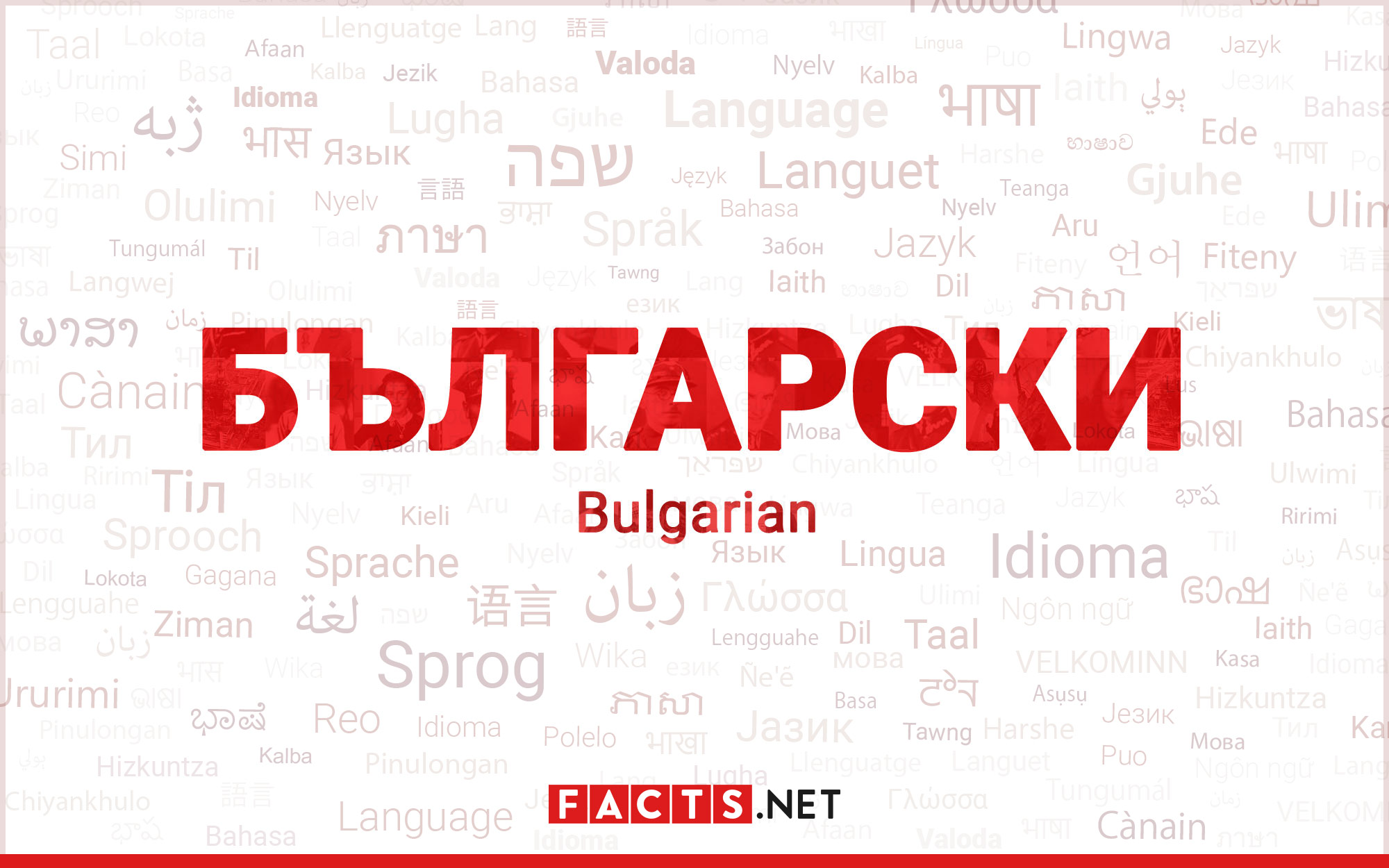
Bulgarian is a fascinating language with a rich history and unique characteristics that sets it apart from other Slavic languages. Spoken by approximately 9 million people worldwide, Bulgarian is the official language of Bulgaria and is also recognized as a minority language in several neighboring countries.
In this article, we will delve into the intriguing world of Bulgarian and explore eight astonishing facts that make this language truly remarkable. From its Cyrillic alphabet to its complex verb system, Bulgarian has a lot to offer for language enthusiasts and curious minds alike. So, without further ado, let’s uncover the hidden gems of Bulgarian language and discover what makes it so special!
Key Takeaways:
- Bulgarian is an Indo-European language with its own unique alphabet, rich vocabulary, and complex verbal aspect system, making it a fascinating and vibrant language to explore.
- With six grammatical cases, specific verb endings for politeness, and rich dialects, Bulgarian is a language that reflects the country’s rich cultural heritage and linguistic diversity.
Bulgarian is an Indo-European language.
Belonging to the Slavic branch of the Indo-European language family, Bulgarian shares similarities with other Slavic languages such as Russian and Serbian.
Bulgarian has its own unique alphabet.
Unlike many other Slavic languages that use the Cyrillic alphabet, Bulgarian has its own version called the Bulgarian Cyrillic alphabet. It consists of 30 letters, including unique characters like ? (shch) and ? (ya).
Bulgarian is the official language of Bulgaria.
Spoken by approximately 9 million people, Bulgarian is the official language of the Republic of Bulgaria. It is also recognized as a minority language in several neighboring countries.
Bulgarian has a complex verbal aspect system.
One of the remarkable features of Bulgarian is its verbal aspect system, which distinguishes between actions viewed as completed (perfective aspect) and ongoing (imperfective aspect). This aspect system adds depth and precision to the language.
Bulgarian has a rich vocabulary.
Bulgarian has a diverse vocabulary, influenced by various sources, including Latin, Greek, Turkish, and Slavic roots. It has also borrowed words from other languages over the centuries, making it a fascinating linguistic blend.
Bulgarian has six grammatical cases.
Unlike English, which typically uses only three grammatical cases, Bulgarian has six: nominative, accusative, dative, genitive, instrumental, and vocative. These cases play a crucial role in determining the function of nouns and pronouns in a sentence.
Bulgarian has specific verb endings for politeness.
In Bulgarian, verb conjugation includes special endings to indicate politeness. This unique feature allows speakers to show respect or formality when addressing others, adding a layer of social nuance to the language.
Bulgarian is rich in dialects.
Throughout Bulgaria, different regions have their own distinct dialects with unique pronunciation, vocabulary, and grammatical features. This dialectal diversity adds vibrancy to the Bulgarian language and reflects the country’s rich cultural heritage.
Conclusion
In conclusion, Bulgarian (language) is a fascinating and unique language that has a rich history and cultural significance. From its Cyrillic script to its peculiar grammar rules, Bulgarian is truly a language that sets itself apart. With a diverse vocabulary and interesting linguistic features, it offers a rewarding and challenging learning experience for those who are interested in exploring new languages.Whether you are planning to visit Bulgaria, have Bulgarian heritage, or simply want to expand your linguistic horizons, delving into the world of Bulgarian will open up a whole new realm of understanding and communication. Embrace the beauty and complexities of this captivating language, and you will be rewarded with a deeper appreciation for the culture and people of Bulgaria.So, why wait? Start your Bulgarian language journey today and unlock a world of astonishing linguistic wonders!
FAQs
Q: Is Bulgarian a difficult language to learn?
A: Like any new language, Bulgarian can be challenging, especially for native English speakers. However, with dedication, practice, and the right resources, it is definitely possible to learn and become fluent in Bulgarian.
Q: How similar is Bulgarian to other Slavic languages?
A: Bulgarian is part of the Slavic language family, but it has its own distinct characteristics. While it shares some similarities with other Slavic languages, such as Russian, Ukrainian, and Serbian, there are also significant differences in vocabulary, grammar, and pronunciation.
Q: Can I use the Cyrillic alphabet to write in Bulgarian?
A: Yes, Bulgarian is written using the Cyrillic script. Learning the Cyrillic alphabet is essential for reading and writing in Bulgarian, as it consists of 30 letters, some of which have different sounds compared to the English alphabet.
Q: Are there any online resources available for learning Bulgarian?
A: Yes, there are various online resources, language courses, and mobile apps specifically designed to help learners master Bulgarian. These resources offer lessons, vocabulary exercises, pronunciation guides, and interactive activities to enhance your learning experience.
Q: Is there a specific level of proficiency required to communicate effectively in Bulgarian?
A: Basic proficiency in Bulgarian can help you navigate everyday conversations, while higher levels of proficiency are necessary for more complex discussions and professional interactions. However, even a basic understanding of the language can go a long way in building connections and showing respect for Bulgarian culture and people.
Immerse yourself in the captivating world of Bulgarian culture and traditions. Uncover the mesmerizing beauty of Bulgarian folklore at the renowned Koprivshtitsa Festival, where vibrant costumes, enchanting melodies, and timeless traditions come alive. Dive deeper into the fascinating aspects of this Balkan gem and let its rich heritage inspire you on an unforgettable journey.
Was this page helpful?
Our commitment to delivering trustworthy and engaging content is at the heart of what we do. Each fact on our site is contributed by real users like you, bringing a wealth of diverse insights and information. To ensure the highest standards of accuracy and reliability, our dedicated editors meticulously review each submission. This process guarantees that the facts we share are not only fascinating but also credible. Trust in our commitment to quality and authenticity as you explore and learn with us.
